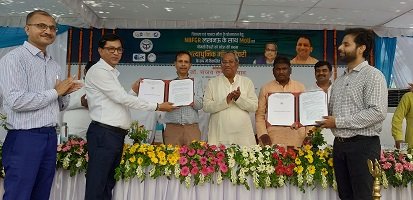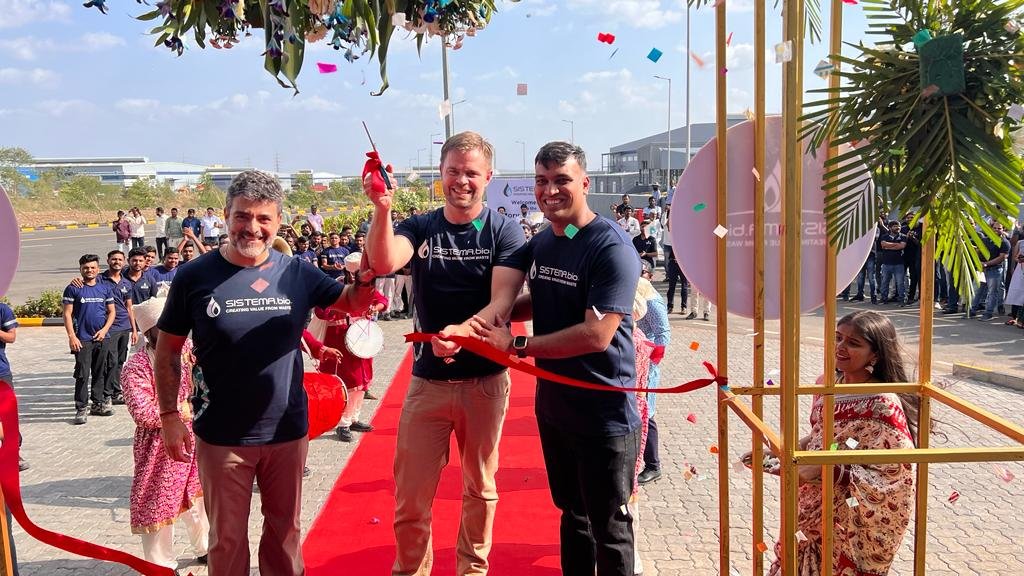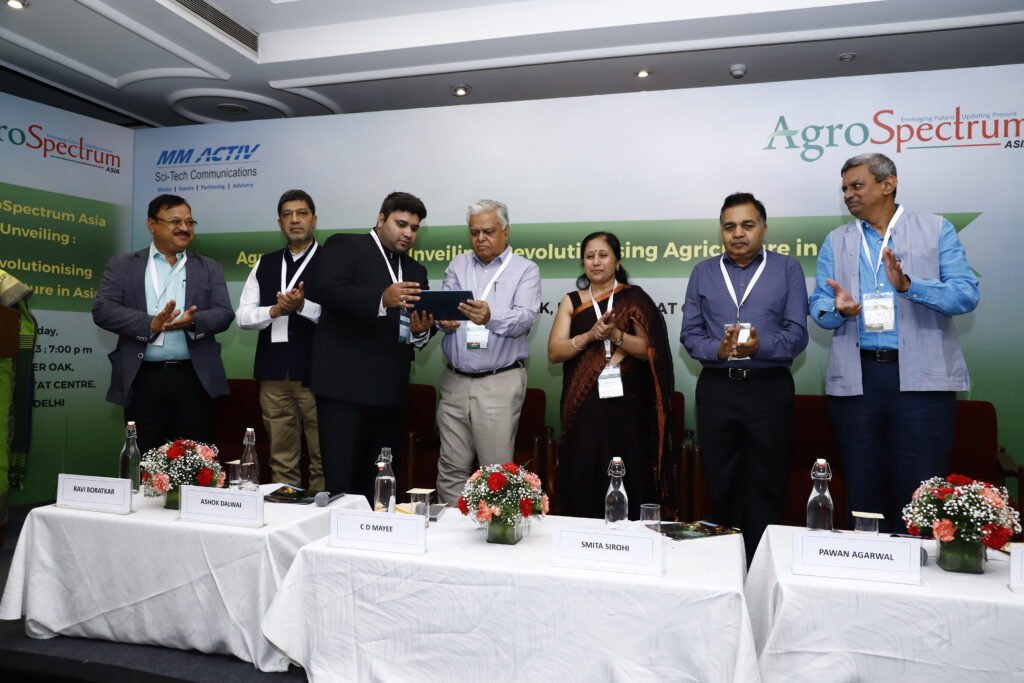ICAR-NBFGR to facilitate stocking of State-fish of UP
ICAR-NBFGR signs MoU with the Fisheries Department of UP to facilitate stocking of Clown knife fish
ICAR-National Bureau of Fish Genetic Resources, Lucknow signed an MoU with the Fisheries Department, Government of Uttar Pradesh, to facilitate stocking of State-fish of Uttar Pradesh ‘Chitala chitala’ (Clown knife fish) in rivers and Ompok bimaculatus (Pabda/Butter catfish) as candidate species for farming in the state.
ICAR-NBFGR will provide technical support and guidance and facilitate the supply of fingerlings of Chitala to the Fisheries Department, Government of Uttar Pradesh, for regular ranching in the state’s rivers.
Dr U. K. Sarkar, Director, ICAR-NBFGR, and Prasant Sharma, IAS, Director, Fisheries Department, Government of Uttar Pradesh, signed the MoU for their respective organisations.
Dr Sanjay Kumar Nishad, Minister of Fisheries, Government of Uttar Pradesh; Dr Rajneesh Dube, IAS Additional Chief Secretary, Fisheries Department, Government of Uttar Pradesh; and Ramakant Nishad, Chairperson, Uttar Pradesh Fisheries Development Corporation were present during the ceremony.
Chitala was categorised as ‘Near Threatened’ according to the IUCN List 2010. It’s vital to conserve the population of Chitala in the rivers of Uttar Pradesh by way of regular ranching. The Fisheries Department, Government of Uttar Pradesh, plans to carry out river ranching of Chitala in Uttar Pradesh for the next ten years.
ICAR-NBFGR signs MoU with the Fisheries Department














